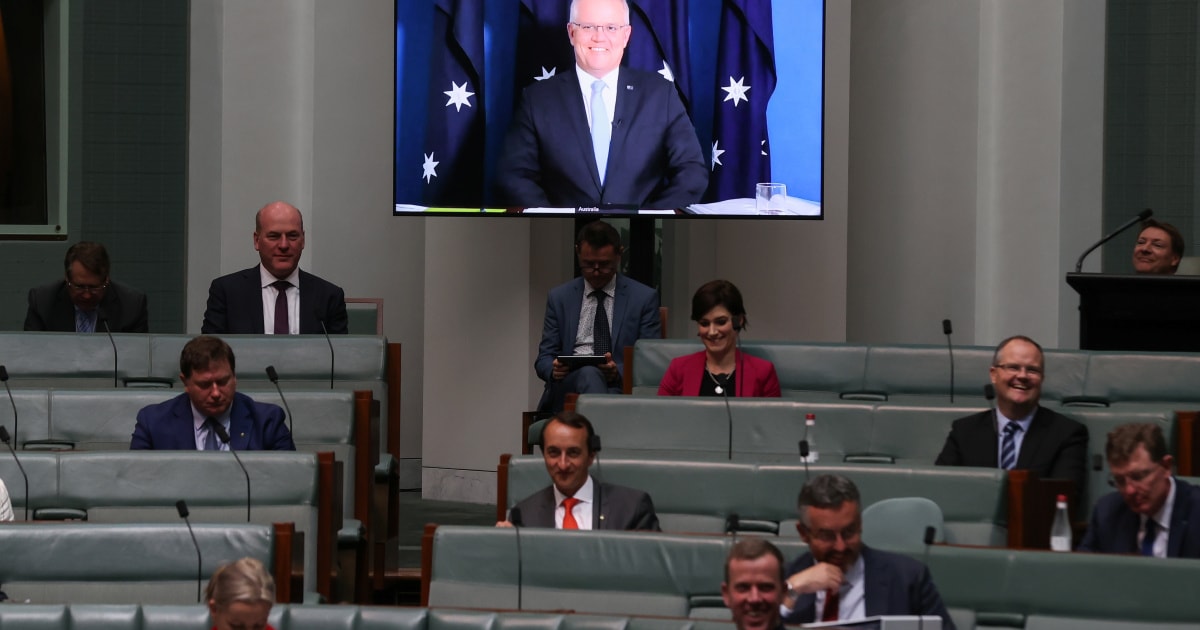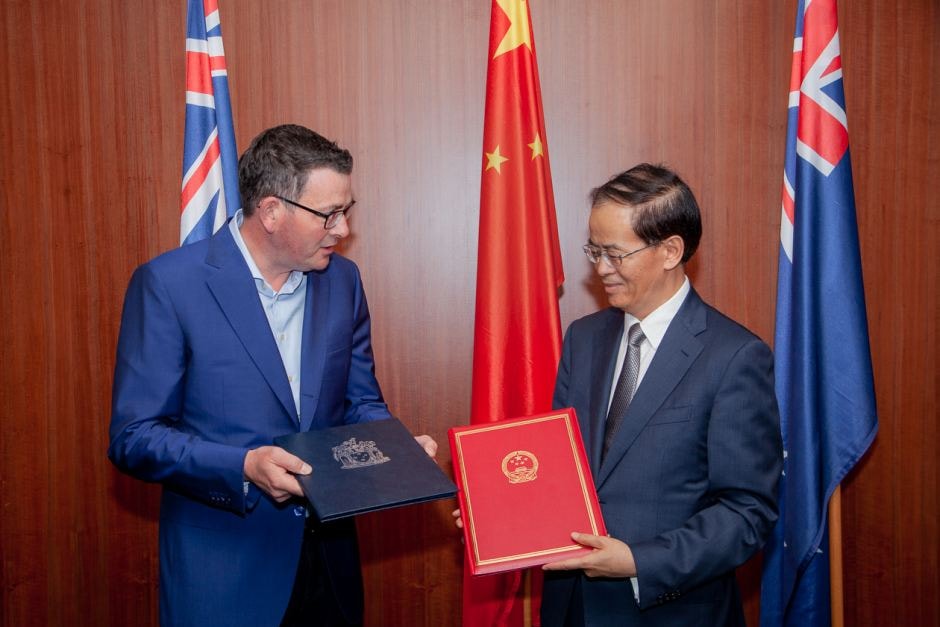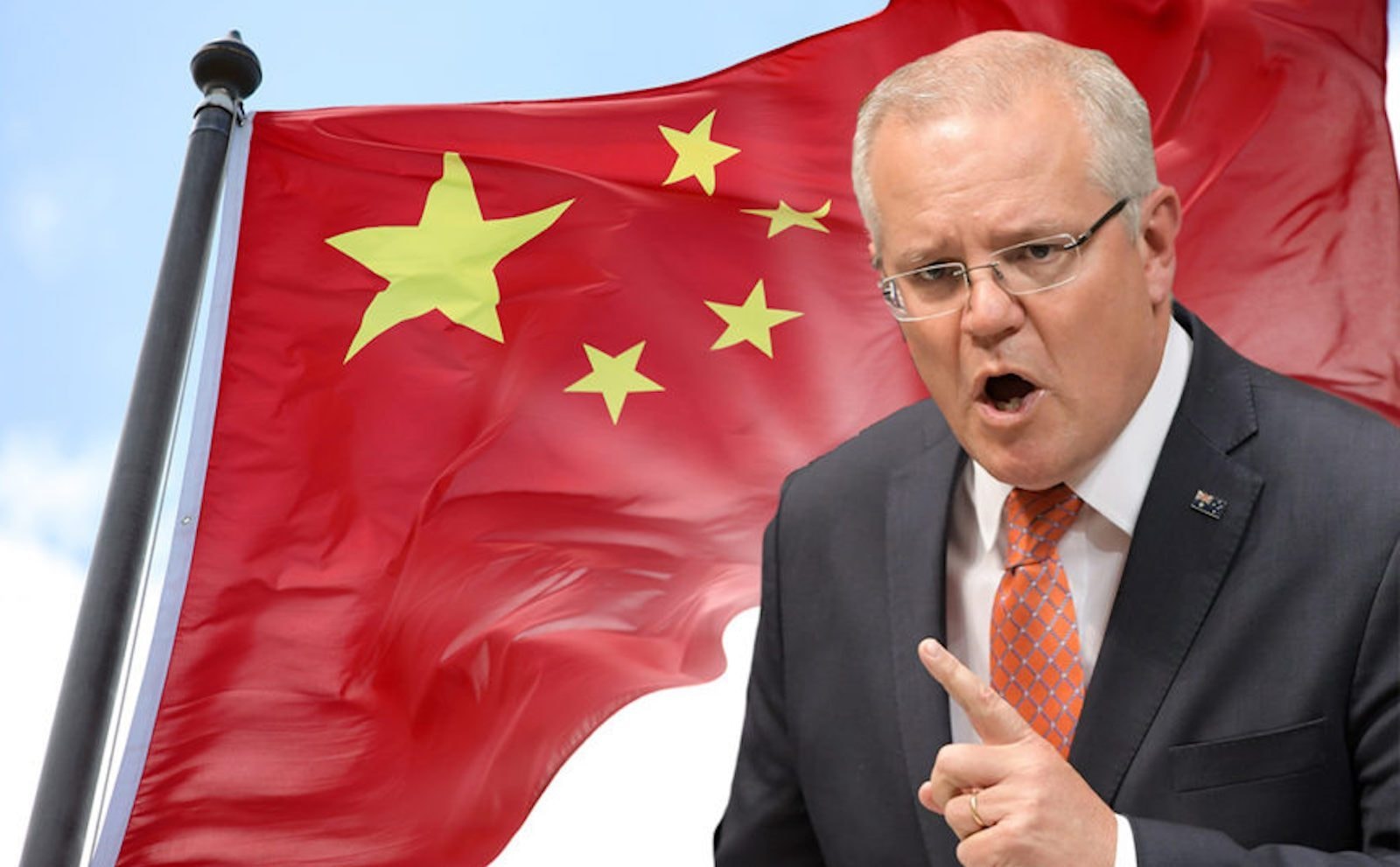Australia's decisive move against China
(Baonghean.vn) - The Australian Parliament has just officially passed a new law on foreign relations, allowing the federal government to veto agreements signed by local governments with foreign organizations and governments.
Although Australia has declared that it is not targeting any country when passing this law, all attention is focused on China, with the risk that the “Belt and Road” agreement signed between China and the Australian state of Victoria will be “erased”. Analysts say this is a decisive “move” by Australia toprevent the growth of influenceChina - an issue that is causing growing concern in Australian politics.
The fragile “Belt and Road”
The Foreign Relations Act, which the Australian Parliament has just passed, will apply to all agreements signed between Australian state and territory governments, local councils and public universities with foreign countries. According to the Australian Government's explanation, the states and territories of this country are increasingly reaching out to the world, increasing cooperation in an increasingly complex world context brings greater risks, requiring more consultation and assessment from macro-management levels to ensure that state and local governments, academic and research institutions... act in accordance with the general foreign policy of the federation. For this purpose, the Australian Foreign Relations Act allows the Australian Foreign Minister to cancel any agreement if it is deemed unfavorable to foreign relations or inconsistent with Canberra's foreign policy.
 |
| The Australian Parliament passed the Foreign Relations Act. Photo: ABC News |
According to the Australian Government's announcement, about 130 agreements between states and territories with more than 30 countries may be affected by the new law. But the agreement that is becoming the focus of public attention, and is at risk of becoming the first "victim" of this "review" mechanism, is the agreement signed between Victoria and China to jointly implement projects within the framework of China's "Belt and Road" initiative. This agreement has received special attention from the public because, since its signing, the agreement has encountered many opposing opinions, from both the opposition party in Victoria to the federal government. Australian Prime Minister Scott Morrison himself has continuously criticized this agreement of Victoria, and many opinions even say that passing the Foreign Relations Act is the way Mr. Morrison is forced to do to prevent Victoria from promoting projects within the framework of the "Belt and Road".
Immediately after the new law was passed, the Australian Department of Trade said that Victoria state has 3 months to prove to the federal government that the "Belt and Road" agreementconsistent with Australia's national interestsas well as ensuring the provisions of the law. However, the possibility of Victoria passing the Foreign Relations Act is very low, stemming from many concerns that have arisen around the agreement that Premier Daniel Andrews signed with Chinese Ambassador to Australia Cheng Jingye in 2018. At that time, Mr. Daniel Andrews announced that the agreement aimed to realize the largest infrastructure development program in Victoria's development history, thereby promoting trade and investment activities between Victoria and China. However, the agreement between Victoria and China tends to expand beyond the framework of infrastructure investment to other areas such as biotechnology, agriculture, food, cosmetics and many other industries. This expansion trend raises concerns about the risk of Victoria falling into the "debt trap policy" that experts have warned about countries participating in the "Belt and Road" initiative. Regardless of the likelihood of the risk occurring, the fact that no Australian state has signed an agreement with China like Victoria is enough to raise big questions.
In addition to the Belt and Road Initiative agreement between China and Victoria, a number of other agreements are also classified as high-risk, such as those between China and the states of North Australia, South Australia and Tasmania in areas such as investment cooperation, science and access to Antarctica.
 |
| Victorian Premier Daniel Andrews and Chinese Ambassador to Australia Cheng Jingye signed the Belt and Road Initiative agreement in 2018. Photo: ASPI Strategy |
The problem of interests and sovereignty
The attempt to block the agreement to implement the “Belt and Road” initiative that Victoria signed is seen as a decisive move by Australia, affirming Boris Morrison’s uncompromising approach in the recent tense relationship with Beijing. This assessment is completely reasonable when looking at a series of developments between the two sides, such as theAustralia bans Huawei Telecommunications Groupparticipating in the development of 5G networks, calling for an independent investigation into the origins of the Sar-CoV-2 virus, China's imposition of sanctions on Australian beef and barley products in response, and most recently, the controversy surrounding Chinese Foreign Ministry Spokesperson Zhao Lijian.posted a picture of an Australian soldierin Afghanistan - a photo that Australia accused of being a "staged photo".
Australia's passage of the Foreign Relations Act is seen as more than a diplomatic response and has a more strategic significance, based on the perception of China's growing influence in the region as well as in Australia itself in recent times.
With a comprehensive strategic partnership established in 2014, China is still Australia's largest trading partner. However, in addition to mutually beneficial investment and trade cooperation activities, geostrategic concerns are increasingly emerging in Australian politics about the rise of China, about the increase of China's influence and intervention in the region as well as with Australia itself.
That is why Australia is extremely cautious about China’s “Belt and Road” initiative. Supporters of the initiative say that participating in the initiative is an opportunity to promote trade, create more cooperation opportunities, create more jobs for Australian businesses, and help Australia increase market access across the “Belt and Road” network.
 |
| Australian Prime Minister Scott Morrison has taken a decisive approach to China's rise. Photo: Asia Times |
But on the other hand, Australia's security and defense sectors are concerned about threats to sovereignty due to China's intervention through economic tools, eroding the role of the US as well as other powers in the region. This risk is completely present when China has foreign ownership of essential infrastructure systems such as ports, energy, roads, and uses this ownership as a "leverage" to influence Australian policy. The Northern Territory government's leasing of Darwin port - where US soldiers were stationed - to China's Landbridge Group is one of the projects that is being viewed with such concern.
With the Foreign Relations Act, Australia clearly wants to prevent the possibility of a second, third, etc. “Darwin projects” in the future. But the cautious Australians believe that China will certainly be an important partner in trade and investment for Australia, but when faced with the issue of interests and sovereignty, Australia’s choice is always the latter.

